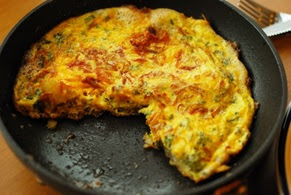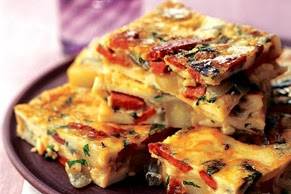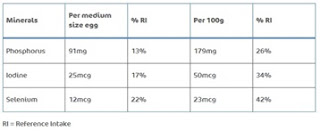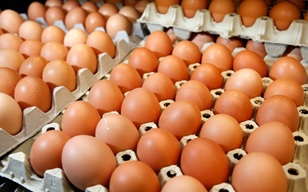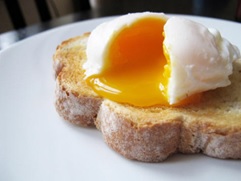“We’re
going veggie” Were the words uttered from the boyfriends
lips last week. He watched this speech
via a friends link on good old Facebook and
instantly decided this is the way forward and we are to no longer eat
meat.
I’m
ok with that. Been following the Meat Free
Mondays ideal for a while now and to be honest I rarely have the time, money or
energy to cook a good cut of meat most days.
If and when I do eat any meaty products, they are low grade processed
versions of what might once have been a perfectly healthy animal (ie bacon
sarnies, toasted ham and cheese, chicken fried rice ??) Meat is often my go to convenience food and as
such I’ve always seen it as a bit naughty/no good anyway. As I say though, this is due to the rubbish
processed versions of the red (and white) stuff I’ve been eating – let me make
it clear I’m not slating a good honest farmer, butcher, chef or steak!
Anyway,
back to the veggies – as I established the “rules” of this new found vegetarianism
and how he wants us to embark on this eating plan I’ve discovered - to my
relief - we are not talking about buying vegetarian shoes, we are not cutting
out fish and we will still eat eggs, cheese, milk and all dairy products. (He loves an omelette and a milkshake, I love
fish and seafood so that’s agreed). We
will then be following a pescatarian diet:
PESCATARIAN =
“A vegetarian who also
eats fish or other seafood. From the latin word for fish: piscis. Also known as
a fishetarian” EG “I'm going
pescatarian, since I really like lobster and it's so hard to find protein in
vegetables”. (Urbandictionary.com)
“Pescetarianism /ˌpɛskəˈtɛriənɪzm/
(also spelled pescatarianism)[1] is the practice of following a diet that
includes fish or other seafood, but not the flesh of other animals. Most
pescatarians maintain a lacto-ovo vegetarian diet with the addition of fish and
shellfish”. (Wikipedia.org)
“A person who does not
eat meat but does eat fish: no red
meat my family are pescatarians” (Oxford dictionary)
“Someone
who eats fish but not meat” (Cambridge dictionary)
So
for my part, I am happy doing this and looking at things from a health and
nutrition point of view I can see the benefits and compensate for any pitfalls.
Benefits of a
pescatarian diet include:
Health Benefits:
- Reducing the risk of heart disease, stroke, osteoporosis, obesity, diabetes, arthritis, high blood pressure and some types of cancer (esp bowel and colon).
Benefits to the environment:
(stats
from www.vrg.org – the vegetarian resource group - 1lb of beef requires 2,500 mgalons of water to produce – so water saving
- Deforestation (in the US) is a major side effect of creating land to house livestock – so saving trees and forests
- The animals raised for slaughter in the US create 130 times the excrement of the entire human population (annually) – so saving on clean up
- Grains fed to livestock in the US could instead feed 60million humans dying of starvation – so benefiting nourishment and hunger
Animal Cruelty:
- “If slaughterhouses had glass walls, everyone would be a vegetarian” – the famous quote from Paul McCartney says it all really, along with the watching of Earthlings and Vegucated (links below)
Disadvantages of a
pescatarian diet include:
- Alternative research shows that eating too much fish can increase your risk of exposure to pollutants and mercury. Fatty fish such as salmon and mackerel, plus some white fish contain low level pollutants that could actually increase your risk of cancer, diabetes and thyroid diseases
- Sardines and herring for example also have low mercury levels, yellowfin tuna for example has high mercury levels, therefore should be limited in our diets
- Iron consumption – heam iron (more easily digestible and used in the body) comes from meat, whereas plant based diets, while sourcing iron from dark green leafy veg, sources iron that is less easily absorbed, processed and used in the body – sometimes leading to iron deficiency disorders such as anaemia
- Lack of protein – this doesn’t seem so much of an issue anymore as following a vegetarian or pescatarian diet still allows access to beans, pulses, vegetables and fish that can carry protein we require. Also on our western diet (especially in the UK) we tend to eat more than enough protein without even realising it – its not something our diets are lacking.
In
recent internet searching, Ive also found out mortality rates are 34% lower in
pescatarians than those on a diet including meat, plus fish can raise HDL
levels! So overall it seems the health benefits at least, outweigh the
disadvantages or pitfalls of this eating plan.
The pescatarian diet to me, seems similar to a Mediterranean one – and
that is promoted as one of the healthiest diets to follow. It’s also similar to a Nordic or Japanese
diet – who knew these had something in common!
I
did worry slightly about getting enough iron and vitamins/minerals in our diet
that would be missing by cutting out meat, but realised these alternative
sources:
- Iron can be found also in eggs / pulses / dried fruit / dark green and leafy veg / wholemeal breads / seafood and fortified dairy and cereals
- B12 can be gained from eating milk / cheese and dairy products / soya / marmite!
- Omega 3 comes from the fish – oily fish, plus flaxseed (linseed) / tofu (soya) / walnuts and other nuts and seeds
- Zinc can also be found in fish and seafood….plus there are many sea vegetables we can buy easily at the supermarket these days too providing zinc, iron, iodine etc
Maybe
following this diet can be the start of the transition to vegetarianism, and
then perhaps going vegan? Who knows, but
I am looking forward to feeling healthier, losing a little weight, cutting down
(out) on the processed foods and salt, and hopefully while achieving this, we
will also be doing something good for the planet and our resources…..?
BUT
You
see, after watching the
speech he has been urging me to watch Earthings
(you can view here: http://earthlings.com/?page_id=32). A while back I watched Vegucated (you can watch this here: https://www.youtube.com/watch?v=19qSsUI79Ro) These films make me feel guilty
for eating any meats and meat based products. Therefore this change in diet plus watching
where our foods are coming from I think are 2 great steps in the right
direction to me feeling good about myself – I get a feeling that I’m doing the
right thing and should therefore somehow be congratulated for this - I don’t think
this is the right attitude?
Now
here’s the other thing – I can’t figure out whether we really are helping the
planet or not. I feel awful thinking of
the horrible ways in which animals are mistreated and slaughtered for our
dinners, so not eating meat rids me of that guilt, however what about the
breeders and butchers and farmers and jobs and livelihoods that would be lost
if we all stopped eating meat? How am I
really helping the planet – are pigs and cows and chickens a dwindling species? And what about the fish – are they a
sustainable food source these days? Is
overfishing detrimental to our oceans? These are the questions I’m asking and the
details I really want to learn about.
Regards the fishing/fish I have come across a few good websites that I
thought I’d share:
Marine
Conservation Society: http://www.fishonline.org/fishfinder?min=1&max=2&fish=&eat=1
Sustainable
Food Trust: http://sustainablefoodtrust.org/articles/ending-overfishing/?gclid=Cj0KEQjw8-GtBRCMl7m54PzgjNQBEiQAIZckvx0NePS-PxywEE009dhKdz2U0fGtyZr_k5e8rg2IffsaArmM8P8HAQ
Other than this as I have so many questions, I’m inviting any feedback,
and recommendations of articles, books, websites, studies, documentary and scientific evidence in relation to this please. I want to figure out the REAL benefits of a meat free diet – benefits to the planet and to others, not just to my health and so I’m not just doing this to rid me of my guilt of eating fluffy cute things. I don’t want to trawl the internet finding inappropriate or not sufficiently researched articles, or misinformation – I want to see evidence of the good not eating meat can produce – I will be grateful for your help in finding this information.
 I
would also welcome any further suggestions from people who have recently turned vegetarian/pescatarian
on how they still balance their vitamin and mineral intake without
supplements. PLUS any good, healthy,
vegetarian TASTY recipes I can make in a flash that the boyfriend will actually
eat. Currently his version of
vegetarianism/pescatarianism follows the “eat
exactly the same only vegetarian versions” diet– ie he bought the entire
range of Quorn products and some cheese pizzas!
I don’t think this is helping much health wise. I want to make some nutritious meals –
breakfast, lunch and dinner. Also
considering he doesn’t much like cheese (apart from edam) or vegetables (apart
from peppers and tomatoes) and flatly refuses to eat fruit (unless its perhaps
blueberries or something just as sweet mixed with ice cream and sugar!) I need
some ideas on how to get around that too!
I
would also welcome any further suggestions from people who have recently turned vegetarian/pescatarian
on how they still balance their vitamin and mineral intake without
supplements. PLUS any good, healthy,
vegetarian TASTY recipes I can make in a flash that the boyfriend will actually
eat. Currently his version of
vegetarianism/pescatarianism follows the “eat
exactly the same only vegetarian versions” diet– ie he bought the entire
range of Quorn products and some cheese pizzas!
I don’t think this is helping much health wise. I want to make some nutritious meals –
breakfast, lunch and dinner. Also
considering he doesn’t much like cheese (apart from edam) or vegetables (apart
from peppers and tomatoes) and flatly refuses to eat fruit (unless its perhaps
blueberries or something just as sweet mixed with ice cream and sugar!) I need
some ideas on how to get around that too!
So
this week after sharing what I’ve learned so far, it’s basically over to you
guys – Do get in touch with any RECIPES and information/recommendations. In return I will keep you updated on how this
pans out… It could be hilarious, it
could be very tedious or it might indeed not last too long. It would be great to hear from anyone else
who has recently taken the leap so you can let me know how you’re getting on
too – benefits you are feeling, things you miss, what’s difficult, what’s easy
etc….? Whatever happens, of course my plan is to stick to it longer than the
boyfriend - I will not cave first, and realistically I am hoping we really will
come out the other side eating a lot healthier, learning some new recipes,
cooking together, growing our own veggies, learning more about the planet and
our resources, more about animals and farming techniques and we won’t go back
to meat again.
Please
feel free to share your stories, info, tips and recommendations via facebook/twitter/blogger/google+
And
as always, you can email info@nitakothari.com
Thanks
all,
**Please
remember this is nutritional advice ONLY (as is all other information and
advice contained in this blog and the websites and social media related to it)
– none of the info or advice is intended to override any recommendation from
your GP or health professional**




